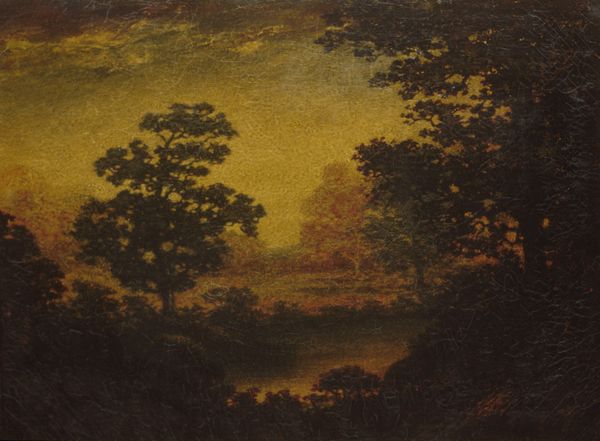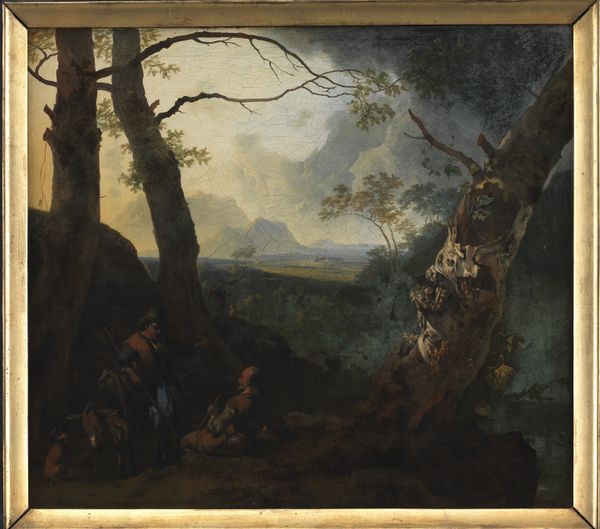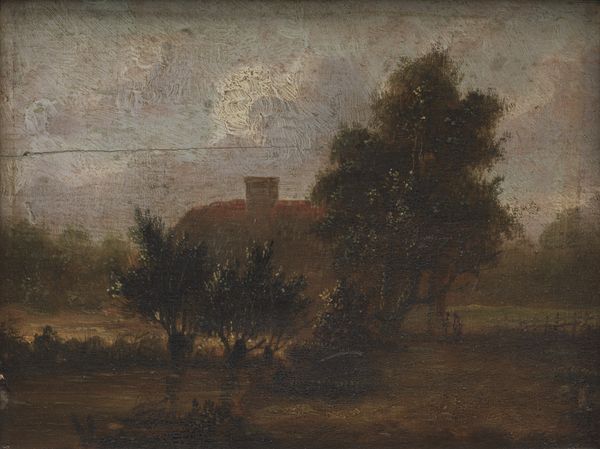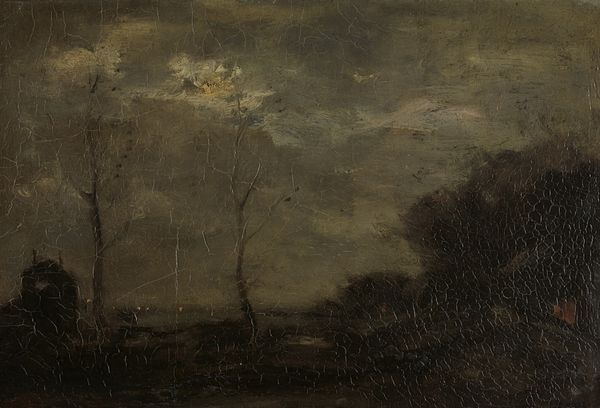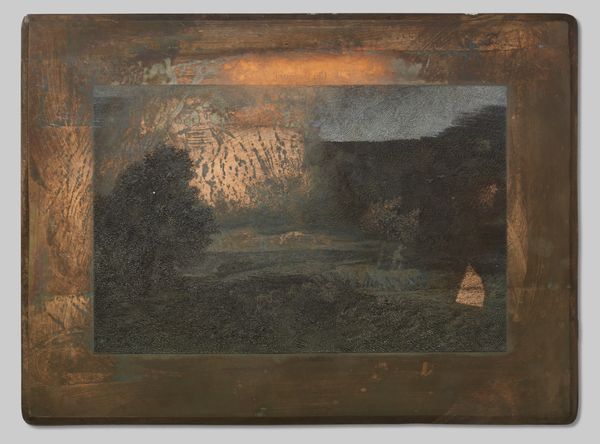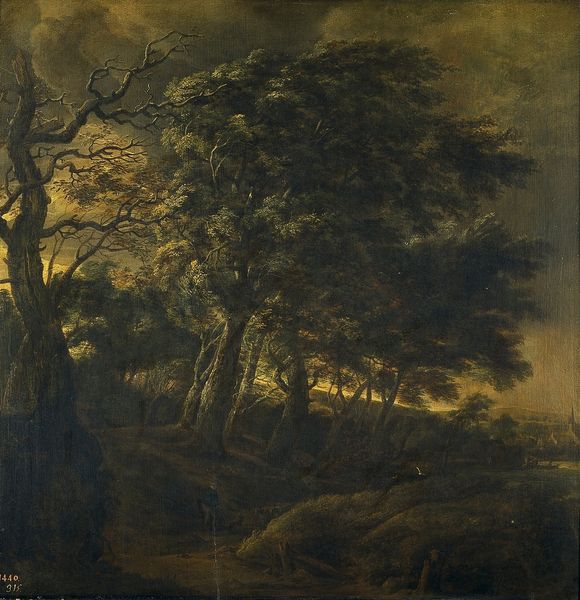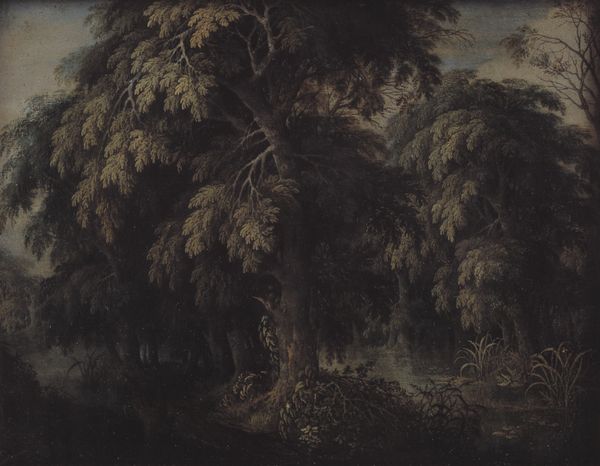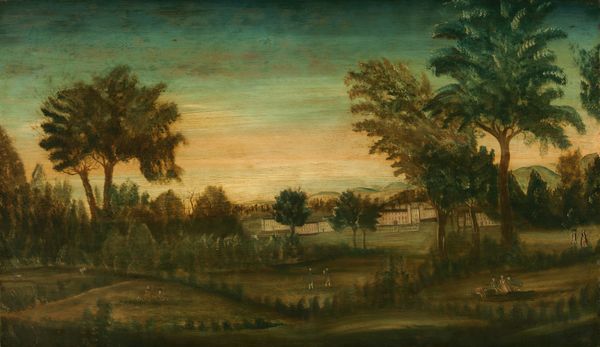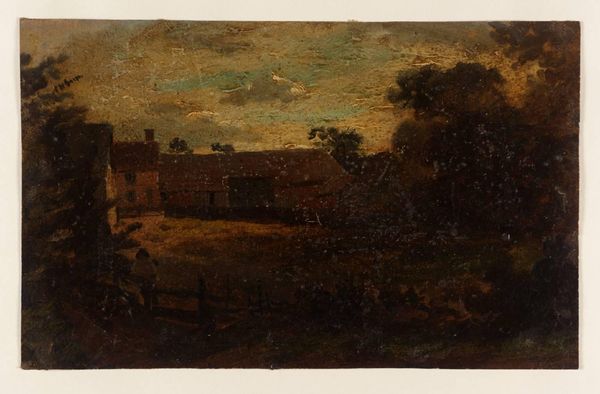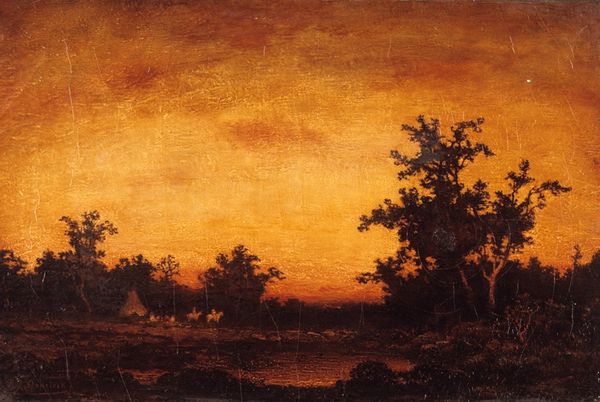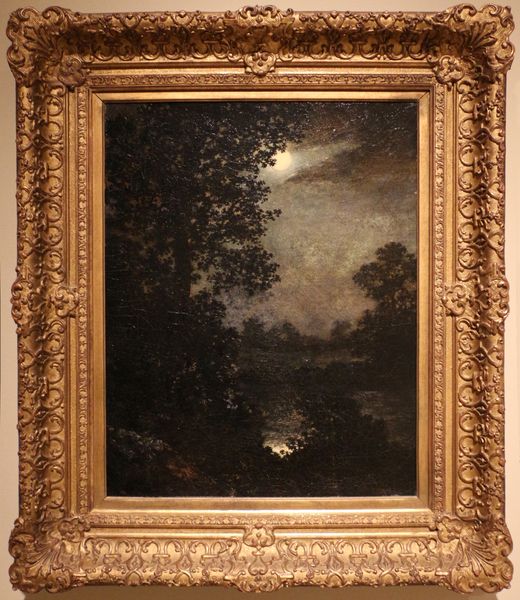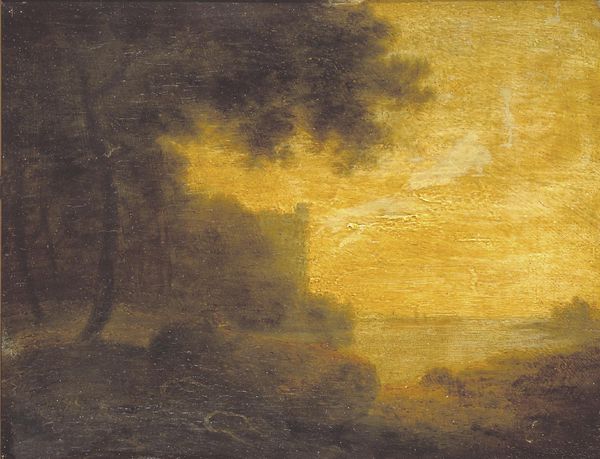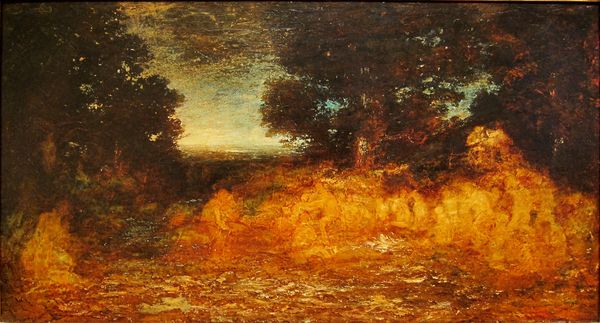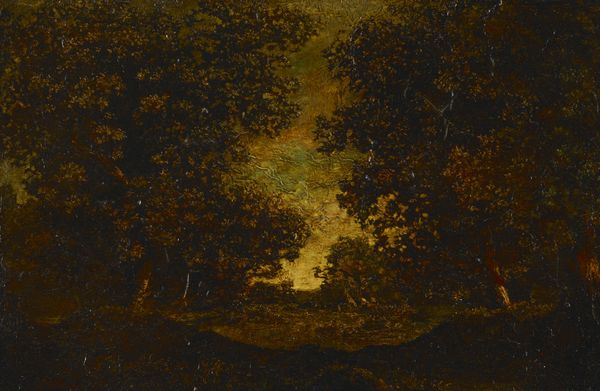
Copyright: Public domain
Curator: Take a moment with Ralph Blakelock’s "Landscape," an oil on canvas he painted in 1899. What strikes you first? Editor: Honestly, a sort of delicious melancholy. It's dark, yes, but that golden light—it's like holding onto the last drop of summer. Curator: Blakelock was deeply drawn to the romantic interpretation of landscape, something the Hudson River School embraced. However, he diverged significantly, especially in his technique. Editor: Yes, this is much moodier and less topographical, like a memory more than a portrait of a specific place. I feel like the dark, brooding landscape is somehow meant to mirror the inner world of the painter himself. He seemed a complex character, often troubled. Curator: Absolutely. He layered paint obsessively, sometimes even using unconventional materials like sand or varnish to create texture, scratching into it, and glazing over it for that kind of haunting luminosity we see here. Think about the era, the industrial revolution transforming the environment... Blakelock was more interested in a dreamscape, something untouched. This contrasted significantly with the booming art market that valued grand landscapes illustrating national expansion. Editor: Right, because he felt estranged from that world. You sense that deep desire to return to something simpler, wilder, perhaps even something lost forever. It's a sentiment that resonates even now, with our very modern anxieties. Curator: Interestingly, it's a longing many found relatable but Blakelock’s painting style never achieved great commercial success during his lifetime. Editor: And that is profoundly sad. In a sense, that adds to the feeling when looking at it; a mix of solitude and beauty. Curator: A sentiment made palpable through layers and layers of paint, scratched away, burnished by his artistic struggle. I find that this piece speaks to art’s crucial role beyond simple representation or national celebration; its power resides in capturing raw emotion, the complex interplay of inner experience with the external world, especially poignant today. Editor: Couldn’t agree more! For me, the way the light almost weeps across the canvas creates a powerful invitation to reflect on nature, loss, and perhaps even beauty itself, and as something we need to preserve in the face of progress.
Comments
No comments
Be the first to comment and join the conversation on the ultimate creative platform.
